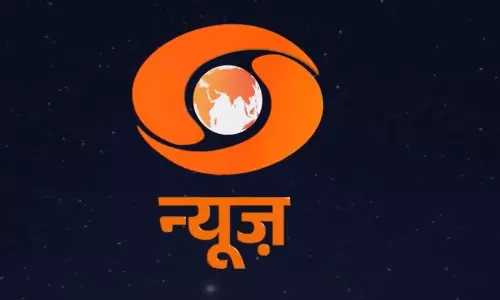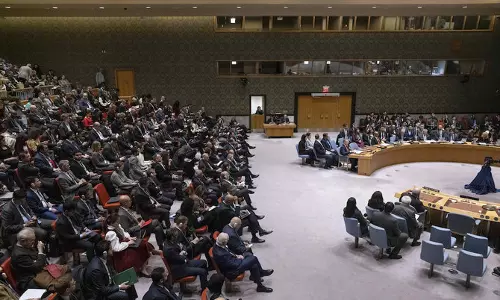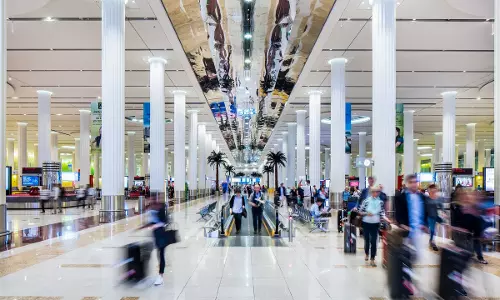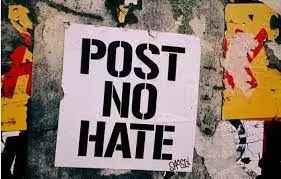
Give up silence, stand up against orchestrated hatred: Media Fraternity
text_fieldsNew Delhi: In the wake of growing hatred in the country against the religious minorities, especially Muslims, the media fraternity jointly urged all Indian institutions to be firm on upholding their constitutional duty to prevent the situation from turning out to be worst.
An open letter signed by more than 25 media persons and acclaimed journalists, urged the President of India, the Chief Justices and other Judges of the Supreme Court of India and the various High Courts, the Election Commission of India, and other institutions to ensure their constitutional obligations are invoked in the backdrop of unfolding hatred in the country.
"Against this backdrop, the President of India, the Chief Justices and other Judges of the Supreme Court of India and the various High Courts, the Election Commission of India, and other constitutionally provisioned and statutory bodies are constitutionally obliged to ensure that these calls for violence do not translate into something unimaginably worse," the letter appealed.
The appeal has expressed apprehensions over the increasing incidents where the hatred has been sown with the intention to create unrest in society by dividing people on religious grounds.
Despite being open the call for Muslim carnage and call on people to take weapons against the Muslims in the country by people allied with right wing groups, there has been little action from the authorities, which call for action from people who are placed with high standing by the constitution to intervene lest the situation should slip into worst.
The letter also noted several past incidents on how hate is being spread in society in the form of a controversy over clothing or even the screening of a movie, under the pretext of Covid-19 with a fabricated term of 'corona jihad', and systematically targeting Muslim women and girls through social media platforms, including the pernicious Bulli Bai App.
Besides calls for violence or the socio-economic boycott of a community, there was 'dharam sansad' which openly called for well-synchronised annihilation of Muslims, the letter said adding that such calls for violence shall not fall in the ambit of free speech and do not enjoy the constitutional protection of free speech.
Read the full version of the appeal below:
An Appeal to India's Constitutional Institutions
As journalists and media persons from all over India, we make this Appeal to all Indian institutions to step in and uphold their constitutional mandate in the wake of open calls from various quarters for attacks on India's religious minorities, especially Muslims.
The concerted amplification of hatred has been growing over the past years and months, as has the attendant advocacy of violence. Sometimes, the occasion is an election, at other times it is a political gathering, a so-called 'dharam sansad', or a controversy over clothing or even the screening of a movie.
These calls for violence – which have been widely reported in the media – have been met with a cold and calculated silence from the country's top leaders. Months before, we saw systematic hate being propagated against Muslims under the pretext of Covid-19, including calls by legislators for their socioeconomic boycott. Disturbingly, the term 'corona jihad' was fabricated and amplified by sections of the media establishment.
Calls for violence or the socio-economic boycott of a community clearly do not enjoy the constitutional protection of free speech. And yet, the political executive – both at the level of the Union and in several States – appears unwilling to discharge its constitutional obligation to act. The police either take no cognisance of those inciting anti-minority violence or register cases under disproportionately mild sections, which strengthens the perception that such offenders are above the law.
Against this backdrop, the President of India, the Chief Justices and other Judges of the Supreme Court of India and the various High Courts, the Election Commission of India, and other constitutionally provisioned and statutory bodies are constitutionally obliged to ensure that these calls for violence do not translate into something unimaginably worse.
Since sections of the media have also allowed themselves to become conduits for hate speech, the Press Council of India, the News Broadcasters & Digital Association, unions and associations of working journalists, and all media-related bodies need to respond urgently to the crisis at hand.
Since December 2021, well-synchronised calls for the annihilation of Muslims have been made, beginning with a religious meet in Haridwar that month. Muslim women and girls have been systematically targeted in 2021 and 2022 through social media platforms, including the pernicious Bulli Bai App.
The ugly controversy over the hijab in Karnataka has resulted in Muslim women in different parts of India being harassed and humiliated.
During the election campaign of February and March 2022, we saw the repeated appeal to divisive hatred and the stigmatising of Muslims and other minorities, with 'star' campaigners from the ruling party unashamedly breaking the law to seek votes in the name of religion.
The Election Commission of India, which is statutorily bound to ensure that such practices do not corrode the integrity of elections, has not shown the required autonomy and independence from the political executive to act.
Most recently, the screening of 'The Kashmir Files' – a film that cynically exploits the suffering and tragedy of the Kashmiri Pandits by using their plight as a pretext for the promotion of hatred against Muslims – has seen orchestrated attempts inside and outside movie halls to incite anti-Muslim sentiment. Attempts have been made from the highest levels of government to stifle fully justified criticism of the film and of the violent reaction it is generating by claiming there is a "conspiracy" afoot to "discredit" it.
When all these events are taken together, it is clear that a dangerous hysteria is being built up countrywide to push the idea that "Hinduism is in danger" and to portray Muslim Indians as a threat to Hindu Indians and to India itself. Only prompt and effective action by our constitutional, statutory, and democratic institutions can challenge, contain, and stop this disturbing trend.
India today stands at a dangerous place, with the founding values of our secular, democratic, and republican Constitution coming under flagrant assault from prejudiced ideas, acts of prejudice, discrimination, and violent incidents, all planned and orchestrated as part of an anti-constitutional political project.
That we have seen elected officials and others who have sworn an oath under the Constitution amplifying some of these multiple and connected instances of orchestrated hate through acts of commission and omission, with sections of the media assisting this project, makes the situation even more urgent.
That is why it is both urgent and crucial that India's constitutional institutions, and especially the President, the higher judiciary, and the Election Commission, discharge their mandate under our Constitution and that the media perform their responsibility to the people of India by asserting their independence and speaking truth to power.
N. Ram, former Editor-in-Chief, The Hindu & Director, The Hindu Publishing Group
Mrinal Pande, Senior Journalist and Writer
R. Rajagopal, Editor, The Telegraph
Vinod Jose, Executive Editor, Caravan
R Vijayasankar, Editor, Frontline
Q. W. Naqvi, Chairman & MD, Satya Hindi
Ashutosh, Editorial Director, Satya Hindi
Siddharth Vardarajan, Founder Editor, The Wire
Siddharth Bhatia, Founder Editor, The Wire
MK Venu, Founder Editor, The Wire
Aziz Tankarvi, Publisher, Gujarat Today
Ravindra Ambekar, Director, MaxMaharashtra
R.K. Radhakrishnan, Senior Journalist
Deepal Trivedi, Founder Editor: Vibes of India, Gujarat
Hasan Kamal, Senior Journalist & Columnist, Inquilab
Teesta Setalvad, Co-Editor, Sabrangindia
Javed Anand, Co-Editor, Sabrangindia
Pradip Phanjoubam, Editor, Imphal Review of Arts and Politics
Anuradha Bhasin, Executive Editor, Kashmir Times
Kalpana Sharma, Independent Journalist
Saba Naqvi, Independent Journalist
Dhanya Rajendran, Editor in Chief, The News Minute
Shabir Ahmed, Senior News Editor, The News Minute
Anirban Roy, Editor, Northeast Now, Guwahati
Dhiren A. Sadokpam, Editor-in-Chief,The Frontier, Manipur
Tongam Rina, Journalist, Arunachal Pradesh
Monalisa Changkija, Editor, Nagaland Page


















